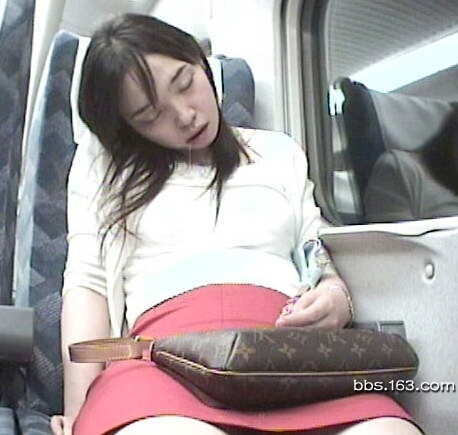Let you take a look at how Japanese people sleep.
Anyone who has taken a train in Japan will have experienced this: the moment you enter a carriage, you immediately feel an atmosphere of "listlessness." Most people sitting on the seats are either drowsy or sound asleep. A few who aren't dozing off still appear lethargic and exhausted. In contrast, when traveling by train or bus in China, you'll see an entirely different scene: passengers are either full of energy looking out the window or chatting with gusto. Even migrant workers with slightly disheveled clothing look energetic and spirited, rarely showing signs of sleepiness or fatigue.
Japanese people who have visited China often express surprise: China is brimming with "vitality" and youthful vigor. In comparison, Japan seems somewhat "moribund." Why do Japanese people always appear so weary and listless? It turns out that most Japanese suffer from sleep deprivation, earning them a nickname from foreigners: "3S" (Smile, Silence, Sleep). The scientific consensus in China is that one should sleep at least eight hours a day to ensure good health. However, in Japan, there's a different norm. Ask around about the daily routines of the Japanese, and most say they go to bed after midnight and wake up before 7 a.m. When I mentioned the "scientific norm" of ensuring more than eight hours of sleep daily, no one had heard of it. Members of the Japanese Self-Defense Forces, who adhere to fixed schedules, wake up at 6 a.m. and lights-out is at 11 p.m., with seven hours of prescribed sleep time. Meanwhile, members of the Chinese military get eight hours of sleep daily.
According to statistical data (data for urban residents in China), the average sleep time for Chinese people is 8 hours and 37 minutes, while for the Japanese, it's 7 hours and 34 minutes. Chinese people sleep over an hour longer than the Japanese each day. Are Chinese people particularly fond of sleeping in? Americans sleep an average of 8 hours and 18 minutes, and the British average 8 hours and 30 minutes—both figures are similar to those of the Chinese. Clearly, it's not that the Chinese sleep too much, but rather that the Japanese sleep too little. No wonder the Japanese always seem listless and lacking in spirit.
Why do the Japanese sleep so little? On average, Chinese people work 5 hours and 44 minutes a day, while the Japanese work 6 hours and 16 minutes, meaning the Chinese work 32 minutes less daily than the Japanese. Chinese people spend an average of 2 hours and 21 minutes doing household chores daily, while the Japanese spend 2 hours and 42 minutes, meaning the Chinese spend 21 minutes less on chores than the Japanese. Given that Japanese households are far more electrified and supermarkets sell plenty of ready-to-eat meals requiring minimal preparation, theoretically, the Japanese should find housework easier and quicker than the Chinese. So why do the Japanese spend more time on chores? It turns out the Japanese are exceptionally meticulous.
For instance, after a meal, Chinese people tend to rinse their dishes quickly, whereas the Japanese carefully wash every plate and dry them neatly. Even simple tasks like wiping tables or sweeping floors take longer because the Japanese approach everything with great care. As a result, the Japanese spend more time on housework. Similarly, they are also extremely diligent at work. What takes a Chinese person an hour might take a Japanese person an hour and a half. This meticulousness keeps the Japanese very busy, forcing them to cut back on sleep to keep up. One could say that the lack of sleep among the Japanese is caused by their overly conscientious nature.
Like most countries, women in China sleep longer than men, averaging six more minutes of sleep per day. However, in Japan, it's the opposite—Japanese women sleep significantly less than men, averaging 27 fewer minutes per day. This is reportedly due to traditional norms: "Women shouldn't go to bed earlier than their husbands in the evening and shouldn't wake up later than them in the morning." Additionally, Japanese women are mindful of their "sleep posture," while men can sleep however they want, women must avoid lying on their backs with legs spread. Japanese parents emphasize cultivating proper sleep postures in girls from a young age, as having poor sleep posture is considered shameful. Thus, Japanese women may be "harder-working" than Chinese women.
It’s often said that Westerners once gave the Chinese the nickname "Sick Man of East Asia," but "East Asia" doesn't exclusively refer to China—it includes Japan as well. Therefore, I believe the term "Sick Man of East Asia" was originally directed at the Japanese, and the Chinese mistakenly claimed it for themselves. A walk down the street reveals that many Japanese people look drowsy and listless, truly resembling the image of a "sick man." In contrast, the Chinese appear far more spirited.
